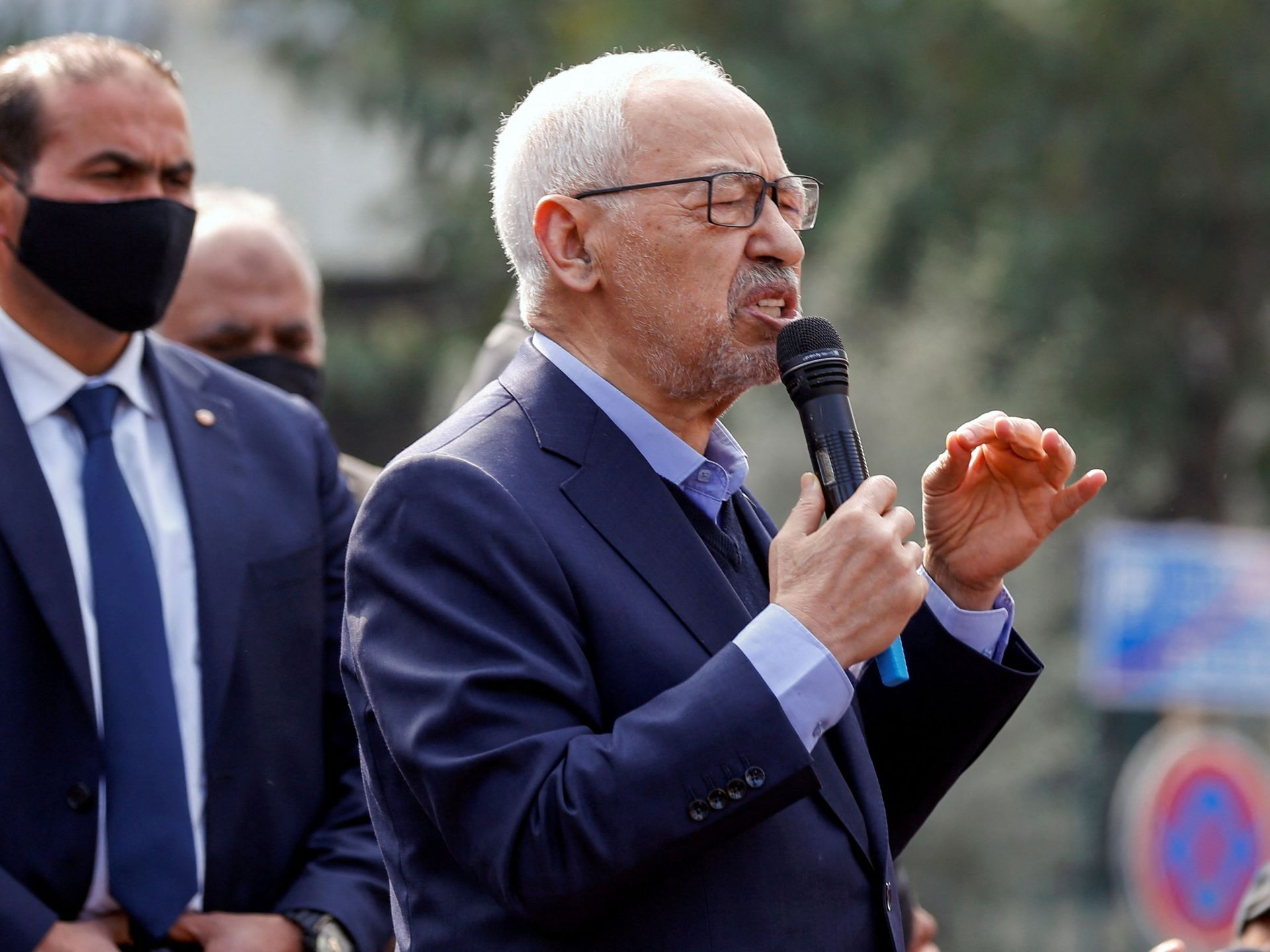A Tunisian court sentenced Ghannouchi to 3 years in prison in a case related to receiving foreign funding (Reuters)
The defense body for the head of the Tunisian Ennahda Movement, Rached Ghannouchi, denied that the movement received foreign funding, and accused the authority of exerting pressure on the judiciary after issuing a 3-year prison sentence for Ghannouchi and former Foreign Minister Rafik Abdel Salam.
Defense member Zeinab Brahmi said - in a press conference yesterday, Monday - that “the Central Bank confirmed that the Ennahda movement did not receive any foreign funding and did not transfer any amounts abroad.”
Meanwhile, member of the Defense Forces, Mukhtar Al-Jamai, confirmed that “The Ennahda Movement has known for decades that it is being targeted, and is keen not to commit any mistake for which it will be legally accountable.”
Al-Jamai said, “The file was made in a hurry to liquidate political opponents, and it is an example of violating procedures and undermining defense rights, and it affects the court and the judiciary in the post-July 25 era,” referring to the political transformation that Tunisia witnessed after President Kais Saied’s exceptional measures.
For his part, Ennahdha spokesman Imad Al-Khamiri said that the movement submitted its statements to the Court of Accounts, and there is no evidence that it received money from abroad.
Al-Khamiri considered that "the political authority is pursuing a policy of targeting opponents instead of searching for the conditions of lost democracy," adding that "the rulings against Ghannouchi come after great pressure and threats to which the judicial authority was exposed."
Judgment details
Last Thursday, a Tunisian court sentenced Ghannouchi and his son-in-law, Rafiq Abdel Salam, a leader in the party and former Foreign Minister, to 3 years in prison with “immediate enforcement,” in a case related to “a political party (Ennahda) accepting financial donations from a foreign party.”
The court also ruled to impose a fine on the party amounting to about 3.6 million Tunisian dinars (about 1.1 million dollars).
The issue of prosecuting political parties due to foreign funding relates to suspicions that entities in the country have received foreign funding to support their propaganda campaigns in the 2019 elections.
The judiciary began investigating the case in July 2021 against parties that included the Ennahda Movement, the “Qalb Tounes” party, and the “Aish Tounis” Association (non-governmental).
On April 17, 2023, security forces arrested Ghannouchi after raiding his house, before the Court of First Instance in the capital, Tunis, ordered him to be imprisoned in the case of “statements attributed to him inciting against state security.”
Since February 11, 2023, the authorities have carried out an arrest campaign that included leaders and activists in the opposition, which considers the exceptional measures “a coup against the revolutionary constitution (the 2014 Constitution) and the consecration of absolute individual rule,” while another group sees it as “correcting the course of the 2011 revolution” that overthrew former President Zine El Abidine. Ben Ali.
Source: Al Jazeera + agencies

